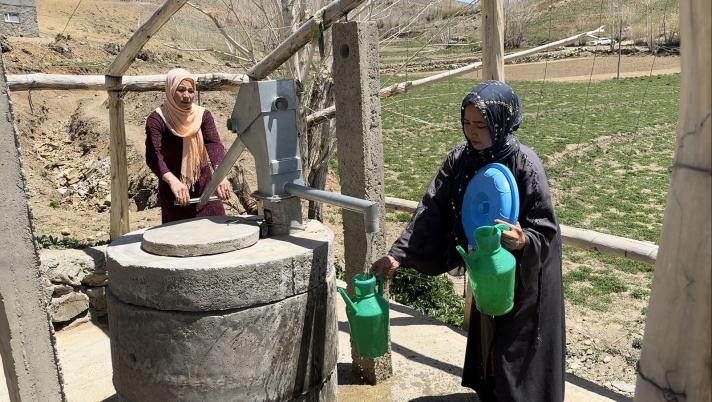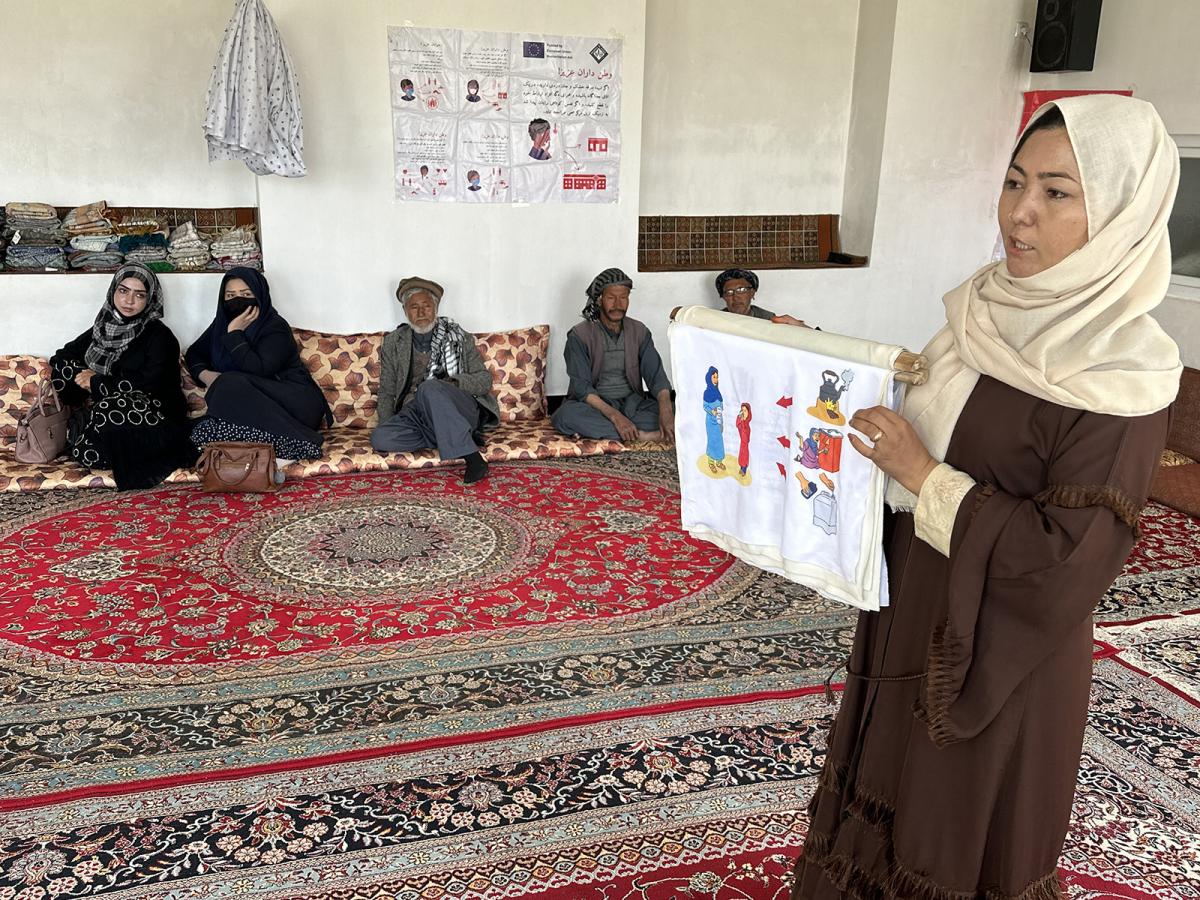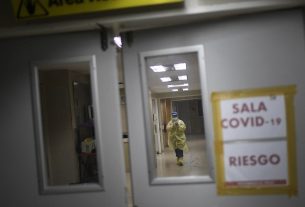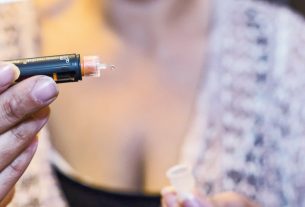Afghanistan is grappling with an unprecedented humanitarian crisis. In 2023, a staggering 28.3 million people – or two-thirds of Afghanistan’s population – require urgent humanitarian assistance to survive.
Over 17 million people face acute hunger in 2023, including 6 million people at emergency levels of food insecurity – one step away from famine. The EU works with the NGO ‘People in Need’ to support the most vulnerable families with cash assistance, rehabilitation of water sources, hygiene and nutrition sessions, and more.
Afghan women and their children participate in a hygiene training funded by EU humanitarian aid.
© People in Need, 2023 (photographer: Petr Stefan)
According to the UN Office for the Coordination of Humanitarian Affairs (OCHA), the end of the 20-year armed conflict between the Taliban and the Afghan National Security and Defence Forces in August 2021, and the simultaneous takeover of the country by the Taliban have ushered in a new era.
Afghanistan is currently facing (i) a rapid economic decline, (ii) hunger and risk of malnutrition, (iii) inflation driven by global commodity shocks, (iv) drastic rises in urban and rural poverty, (v) a near-collapse of the national public health system, and (vi) almost total exclusion of half the population – women and girls – from public life.
High unemployment and sustained inflation of key commodity prices have increased the average household’s debt. This is challenging people’s coping mechanisms and thwarting the already fragile economy’s ability to adapt to shocks, UN says.
Afghanistan is also highly prone to natural hazards, whose frequency and intensity are exacerbated by the effects of climate change.
Improving public health in central Afghanistan
Families in the Jaghatoo, Behsood, and Saydabad districts in Wardak Province, central Afghanistan, face complex public health challenges.
These challenges include malnutrition and diminished capacity to practice good hygiene, and reduced coping mechanisms and resilience to deal with these challenges by themselves. As a consequence, the most vulnerable families are paralysed in their capacity to survive.
During a 1-year-long multi-sectoral intervention, People in Need, supported by the EU’s humanitarian funding, helped prevent the worst public health outcomes. These were brought on by the collapse of government services, contracting economy, and effects of climate change, including drought and floods.

Shakeeba Amiri
© People in Need, 2023 (photographer: Petr Stefan)
Hygiene kits and awareness help to improve public health
“Before [receiving the hygiene kits], we shared hygiene items amongst many people. 1 towel was used by 2 or 3 people, the same for toothpaste as we couldn’t afford 1 each,” describes Shakeeba Amiri, explaining the situation before People in Need came to support the village.
“I received a hygiene kit, and inside the kit, there were 2 jerrycans, 1 bucket, a jar, a towel, sanitary pads, handwashing soap, laundry soap, and a soap case,” says Shakeeba.

Hygiene awareness session
© People in Need, 2023 (photographer: Petr Stefan)
Shakeeba Amiri attended a hygiene promotion session funded by the EU and organised by People in Need.
“We learned how to take care of our personal hygiene and make proper use of the kit, how to remove waste, store it properly and keep our places clean. As most diseases come from polluted environments, we must use safe latrines and cover the windows with nets,” Shakeeba says.
“There must be water and soap in the toilet. We have to wash our hands after defecation. The latrine must have doors and windows, and the areas around our house must be clean,” she adds.
More children with malnutrition are treated
“When the PIN nutrition team measured my daughter’s Mid-Upper Arm Circumference (MUAC), they observed that she was malnourished. Then, they referred her to the clinic, and I visited the clinic for 3 months and received ready-to-use therapeutic food for her,” explains Shakeeba Amiri.
“Right now, she is fully recovered—her MUAC, weight, and height are normal,” she says.

Mid-Upper Arm Circumference (MUAC) measurement.
© People in Need, 2023 (photographer: Petr Stefan)
During the hygiene and nutrition classes, Shakeeba Amiri and others learned about the causes of malnutrition and the need to provide nutritious and healthy food to their children.
“We learned that breastfeeding is the most essential thing for a newborn child. I received the family MUAC tape and learned how to use it. Now, every 15 days, I measure our children’s MUAC,” Shakeeba explains.
Thanks to these EU-funded sessions, Shakeeba now has plans to keep her daughter healthy in the future. “PIN’s hygiene and nutrition team has taught us that we must eat fruits, vegetables, dairy, and other nutritious foods enriched in vitamins. With PIN’s cash assistance, we could buy some vegetables and fruits, but when the money was spent, we took vegetables and fruits from our local farms.”
Rehabilitation of water sources to minimise water-borne diseases
Safe drinking water is an essential part of a future without disease.
“When PIN came, they rehabilitated our well, installed a hand pump, and covered it,” Shakeeba Amiri says about the repaired water pump just a few metres from her house.

Shakeeba helps pump water from their well
© People in Need, 2023 (photographer: Petr Stefan)
The Wardak province, like other high-need and previously hard-to-reach areas in Afghanistan, faces multiple challenges. These include (i) food insecurity, (ii) access to safe and sufficient drinking water, (iii) health hazards including increase in the rate of malnutrition cases, and (iv) lack of knowledge of good hygiene and nutrition practices.
Najeebullah Mir, PIN’s Programme Manager, summarises the advantages of the multi-sectoral approach applied.
“In order to have an impact and build the resilience of the communities, all the challenges people encounter in a certain community need to be addressed comprehensively. The multi-sectoral approach has proven to be the best solution for the most vulnerable families in Wardak province.”
People in Need with EU humanitarian funding supported 68,770 people in Afghanistan’s Wardak province.



